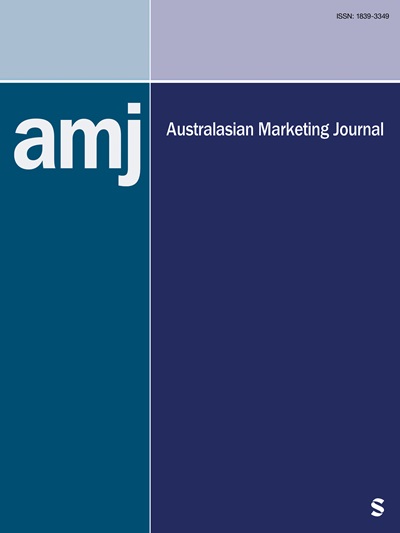营销教育:对相关性的反思
IF 4
Q2 BUSINESS
引用次数: 8
摘要
市场营销是商业领域中就业增长最快的领域之一。大部分的增长在于数字技术的作用和促进可持续性,而不是消费主义。然而,拥有理论知识的学生,即使在这些领域,也不一定能满足这一需求,拥有入门级工作不需要的战略知识的学生也不一定能满足这一需求。市场营销行业对具备技术和多学科软技能的应届毕业生的需求不断增加。因此,本文的目的是反思在澳大利亚,新西兰和亚太地区的大学营销教育的相关性。在这个新的十年开始之际,在一场严重影响大学部门的全球卫生大流行病之后,正是进行这种反思的时候。具体来说,我们会反思我们如何教,教什么。在我们的教学方式下,我们考虑了两个主要问题:在线学习和行业认证的作用。在我们的教学内容中,我们主要考虑三个方面:内容相关性、软技能和行业经验。最后,我们向个别教育工作者和市场营销部门提出了一些关键问题,并就如何共同解决我们提出的问题提供了一些建议。本文章由计算机程序翻译,如有差异,请以英文原文为准。
Marketing Education: Reflecting on Relevance
Marketing is one of the fastest-growing employment areas within commerce. Most of the growth lies in the role of digital technologies and in promoting sustainability rather than consumerism. However, students with mostly theoretical knowledge, even if in these areas, may not necessarily satisfy this demand, nor will students armed with strategic knowledge that is not required in entry-level jobs. There is increased demand from the marketing industry for job-ready graduates with both technical and multidisciplinary soft skills. Thus, the purpose of this paper is to reflect on the relevance of marketing education in universities in Australia, New Zealand and the Asia-Pacific region. At the beginning of this new decade and following a global health pandemic that has severely impacted the university sector, the time is right for such a reflection. Specifically, we reflect on how we teach and what we teach. Under how we teach, we consider two main issues: online learning and the role of industry certifications. Under what we teach, we consider three main issues: content relevance, soft skills and industry experience. We conclude with key questions for individual educators and marketing departments, and we provide some recommendations as to how, collectively, we can deal with the question we pose.
求助全文
通过发布文献求助,成功后即可免费获取论文全文。
去求助
来源期刊

Australasian Marketing Journal
BUSINESS-
CiteScore
14.90
自引率
16.70%
发文量
25
期刊介绍:
The Australasian Marketing Journal (AMJ) is the official journal of the Australian and New Zealand Marketing Academy (ANZMAC). It is an academic journal for the dissemination of leading studies in marketing, for researchers, students, educators, scholars, and practitioners. The objective of the AMJ is to publish articles that enrich and contribute to the advancement of the discipline and the practice of marketing. Therefore, manuscripts accepted for publication will be theoretically sound, offer significant research findings and insights, and suggest meaningful implications and recommendations. Articles reporting original empirical research should include defensible methodology and findings consistent with rigorous academic standards.
 求助内容:
求助内容: 应助结果提醒方式:
应助结果提醒方式:


